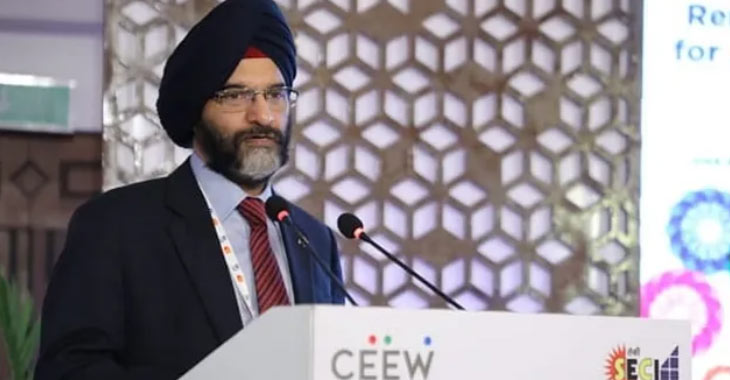India is on track to become a significant player in the global renewable energy equipment supply chain and an exporter as its solar manufacturing capacity is set to reach 100GW by 2026, according to Bhupinder Singh Bhalla, Secretary of New & Renewable Energy.
“We aim to create India as a leading global supplier of renewable energy (equipment),” New & Renewable Energy Secretary Bhupinder Singh Bhalla said at a CII event here.
Bhalla said the solar PLI scheme worth Rs 24,000 crore will create 48GW of new RE manufacturing capacity in the next three years.
India has 28GW of solar module manufacturing capacity and 6GW of solar cell manufacturing capacity at present, he said.
After the implementation of the PLI scheme for solar, India should be in a position to have 100GW solar module manufacturing capacity, he pointed out.
“We need to add 30GW to 40GW of solar power capacity every year. We still have a very large substantial capacity for exports. That is why, India will become a key player in the global supply chain (of solar equipment),” he said.
India has an ambitious target of having 500GW of RE capacity by 2030 and aims to have 50 per cent of its electric power capacity from non-fossil fuel based source like solar, wind energy and green hydrogen. “We aim that India becomes a leading manufacturer of solar modules. India is poised to become a global hub of RE manufacturing,” he said.
Bhalla added that India has 15 GW of wind energy (turbine) manufacturing capacity at present. “We aim to achieve 50 per cent of our electric power from non-fossil fuels by 2030. India has installed renewable energy (RE) generation capacity of 178 GW as of August 2023 and witnessed the fastest RE capacity addition over the past years,” he stated.
The government has launched a production-linked incentive (PLI) scheme worth Rs 24,000 crore ($3.2 billion) to support the establishment of 48GW of solar equipment manufacturing capacity by 2026.
Bhalla emphasized India’s goal to become a leading global supplier of renewable energy equipment and highlighted the country’s potential to add 30GW to 40GW of solar power capacity annually, making it a key player in the global supply chain.



![[CITYPNG.COM]White Google Play PlayStore Logo – 1500×1500](https://startupnews.fyi/wp-content/uploads/2025/08/CITYPNG.COMWhite-Google-Play-PlayStore-Logo-1500x1500-1-630x630.png)